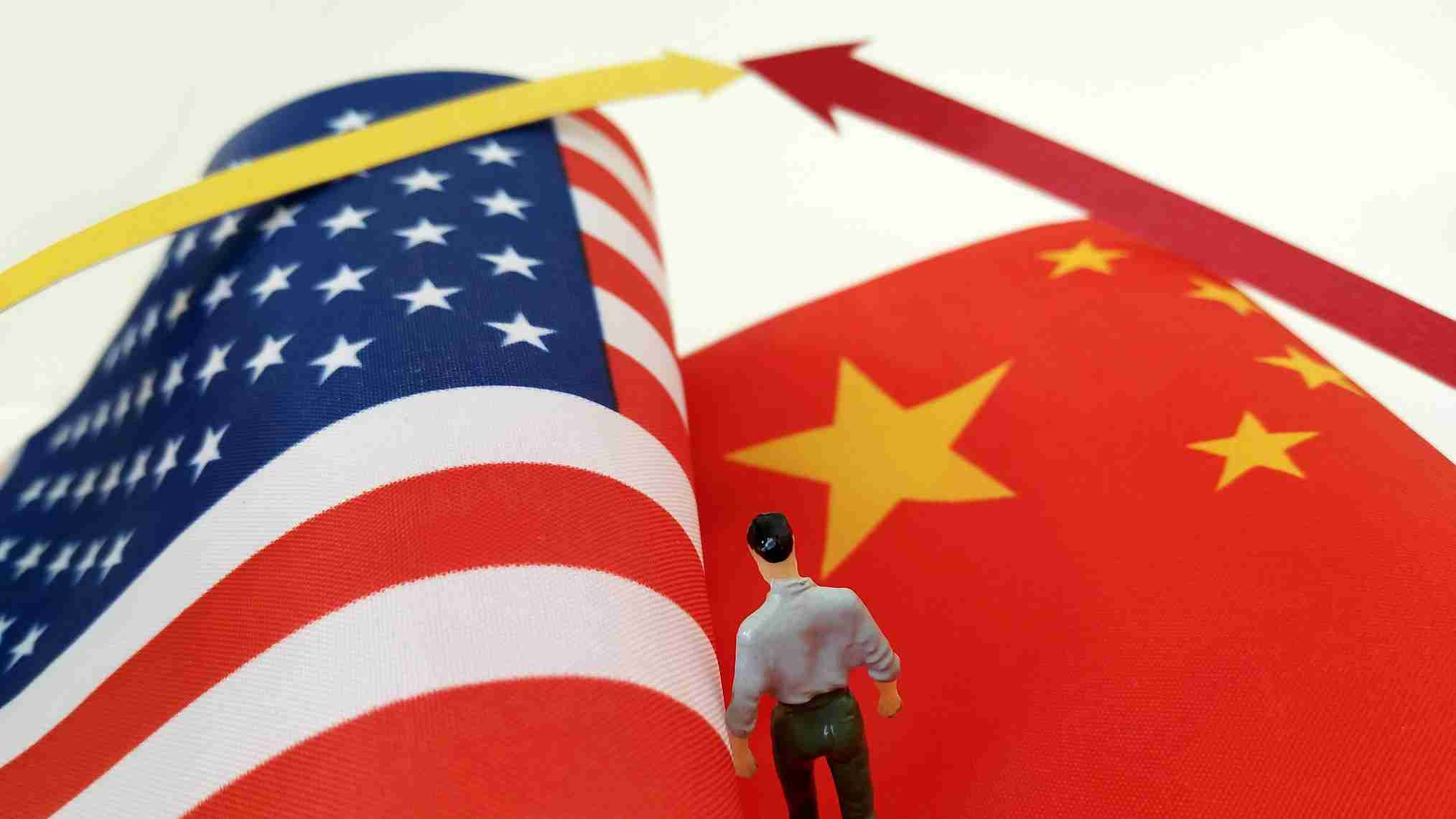DES MOINES, the United States, Oct. 25 (Xinhua) -- A solution to the trade dispute between the United States and China is vital to the two countries and the stability of the world economy, a U.S. economist has said.

File photo: CGTN
"The longer this dispute goes on, the larger the losses become, because the damage continues to accumulate," Chad Hart, an economist and longtime U.S.-China trade watcher at Iowa State University, told Xinhua in a recent interview.
The economist said he was encouraged to see representatives from the United States and China continuing to meet.
"Because it's only through that dialogue can we figure out where common ground can be found," he said.
Hart suggested both sides continue their efforts to have discussions to settle the dispute, though it may take long due to the complexity of the issues.
Describing the world's top two economies as "sort of indisputable dance partners," he said "we are both large enough that we can't completely block the other party out."
A settlement of U.S.-China trade rifts is crucial to the development of global trade and contributes to global growth as well, since "the two countries have the two largest economies in the world," said the economist.
According to his calculations, the state of Iowa has suffered about 1 to 2 billion U.S. dollars in losses or roughly 1 percent of the state's economy for the past year and is expected to suffer a very similar loss this year.
The biggest hit to this Midwestern state is in agriculture, said the longtime U.S.-China trade watcher.
"We export roughly 20 percent of all the agricultural products we produce here (in Iowa). And China has been a very large and growing market for our agricultural exports over the past 15 to 20 years," Hart said.
However, U.S. farmers are losing value in their net worth due to the trade dispute, said the economist.
As to the broader U.S. economy, the scale of the impact is probably in the tens of billions of dollars at this point, and those losses continue to accumulate, he noted, adding the damage would ripple through various industries, causing worrisome consequences if the trade dispute continues.
Earlier this month, data released by the Institute for Supply Management showed that the U.S. Purchasing Managers' Index fell to 47.8 percent in September, the lowest since June 2009 amid protracted trade tensions. Any reading below 50 percent indicates the manufacturing sector is generally contracting.
The minutes of the Federal Reserve's September monetary policy meeting released this month also highlighted the impact of trade tensions on the outlook for the U.S. economy.
The U.S. economist said "the sheer scale" of the ongoing U.S.-China trade spat, "basically the entire trade portfolio between the two countries being in jeopardy," would create unique challenges and unexpected consequences.
Making the situation more complicated is that the U.S. administration also has economic disputes with several other countries, leading to a lot of trade uncertainty, Hart said.
"Global trade right now is suffering due to this policy uncertainty," he said, adding it may take more than a decade to recover if trade tensions continue to worsen.
In its newly-released World Economic Outlook report last week, the International Monetary Fund lowered its global growth forecast for 2019 to 3 percent, warning that growth continues to be weakened by rising trade barriers and growing geopolitical tensions.


